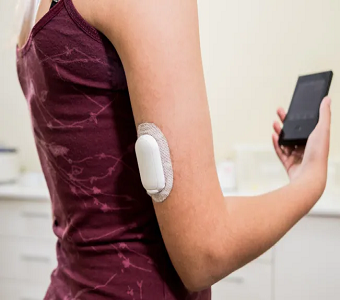Gilead’s coronavirus drug-candidate, remdesivir, moved global financial markets on Friday April 17th as media outlets reported optimistic headlines regarding a potential solution. 
But the truth of the matter remains that the COVID-19 drug-candidate data reported was a single arm, open label study. A concurrent double-blinded, placebo-controlled study in China also gives us pause. Read on to learn why.
What Was Reported?
Gilead’s attempt at a coronavirus or COVID-19 vaccine is a drug candidate called ‘remdesivir’. Stat News reported that an ongoing study of remdesivir showed “rapid recoveries in fever and respiratory symptoms, with nearly all patients discharged in less than a week”.
Why You Should Only Be Cautiously Optimistic
Gilead's sponsored trials are testing their COVID-19 drug candidate, remdesivir, in single arm studies. Without a control comparator arm, there can be no conclusive evidence that remdesivir actually worked. That means reported data is at least partly anecdotal.
Additionally, the ‘data’ came from a single COVID-19 trial site in a hospital in Chicago. Without access to the full data set, we cannot exclude the possibility that the patients enrolled in the Chicago hospital site were an outlier in the study.
Gilead Expected To Report Important Data This Month
Umer Raffat at Evercore ISI, an investment bank, did a great job of breaking down the key remdesivir trials (figure below). Gilead is expecting to report data from different trials throughout April-June. 
The news that sent financial markets rallying on Friday April 17th looked at Gilead’s ‘severe’ patient study (yellow box above in the ‘Gilead-sponsored’ column), which is expected to report data imminently.
There is also an ongoing remdesivir trial in China for a similar “severe” patient population, expected to report results imminently (as shown in figure above, in yellow in the leftmost column). That Chinese study is placebo-controlled, which allows us to compare the outcomes for patients who took Gilead’s drug vs those who were given placebos. Remember that the leaked “encouraging” results from Gilead’s study in Chicago does not have a comparator arm, making it difficult to measure efficacy of the coronavirus drug-candidate based on that data alone.
You might also like to know that the China study would have been stopped early if it showed overwhelming efficacy over placebo. This is enough to give pause as to the reliability of the data out of Chicago that’s being widely touted in the media.
NEJM Data Reported This Very Same News on April 10th, To No Effect on Markets
On April 10th the New England Journal of Medicine (“NEJM”) published data on 53 hospitalized COVID patients who received remdesivir on a compassionate-use basis. In this data set, 25 patients (47%) were discharged, and 7 patients (13%) died. This discharge/mortality rate was in line with the historic COVID-19 data that were already being tracked globally.
However, it’s important to look at the breakdown of oxygen support that patients were receiving as a way of classifying the severity of disease. Here we’re looking at patients who were on:
- “noninvasive” ventilation – think of these as LESS severe patients receiving little to no oxygen support.
- In this noninvasive group 17/19 (89%) patients were discharged.
- In this noninvasive group 17/19 (89%) patients were discharged.
- “invasive” ventilation – think of these as MORE severe patients who are on ventilators/ECMO.
- In the invasive group, 8/34 (24%) patients were discharged.

Results clearly show that group 1 - or the LESS severe patients - saw an overwhelming majority (17 out of 19 or 89%) discharged, whereas group 2 - the MORE severe patients requiring invasive oxygen support saw just 24% (8 out of 34) discharged.
Why is this important?
Gilead’s sponsored trial, the subject of media fascination in the last 24 hour news cycle, excluded mechanical ventilation (the “invasive” MORE-severe” group). This trial only included LESS severe patients. From the NEJM article it was already known that the majority of LESS severe COVID patients get discharged. Neither Gilead, nor the market, moved materially in price when this information became available to the general [investing] public on April 10th. We believe this suggests the market is either overreacting or prematurely reacting to the headline news being touted in the wider media.
China Study Should Give Pause To Reports of Overwhelming Efficacy For Remdesivir
The remdesivir study in severe Covid population that is being conducted in China is a placebo controlled trial that is expected to have data by end of April. This trial had an early look at the interim analysis in mid-March, which if it showed overwhelming efficacy over placebo, would be stopped early. The study did not get stopped early, meaning it did not show overwhelming efficacy.
It can be argued that more patients are needed to power the study to show efficacy, but given the limited information of this trial, we cannot be certain until further data is released. The only takeaway here is that in a placebo-controlled setting, remdesivir did not show enough efficacy over placebo to stop the trial early.
This does not mean that remdesivir is not effective in treating patients with coronavirus, we just simply do not have enough data yet to say that it does.
PropThink contributors don't hold any positions in GILD
Access This Content Now
Sign Up Now!




